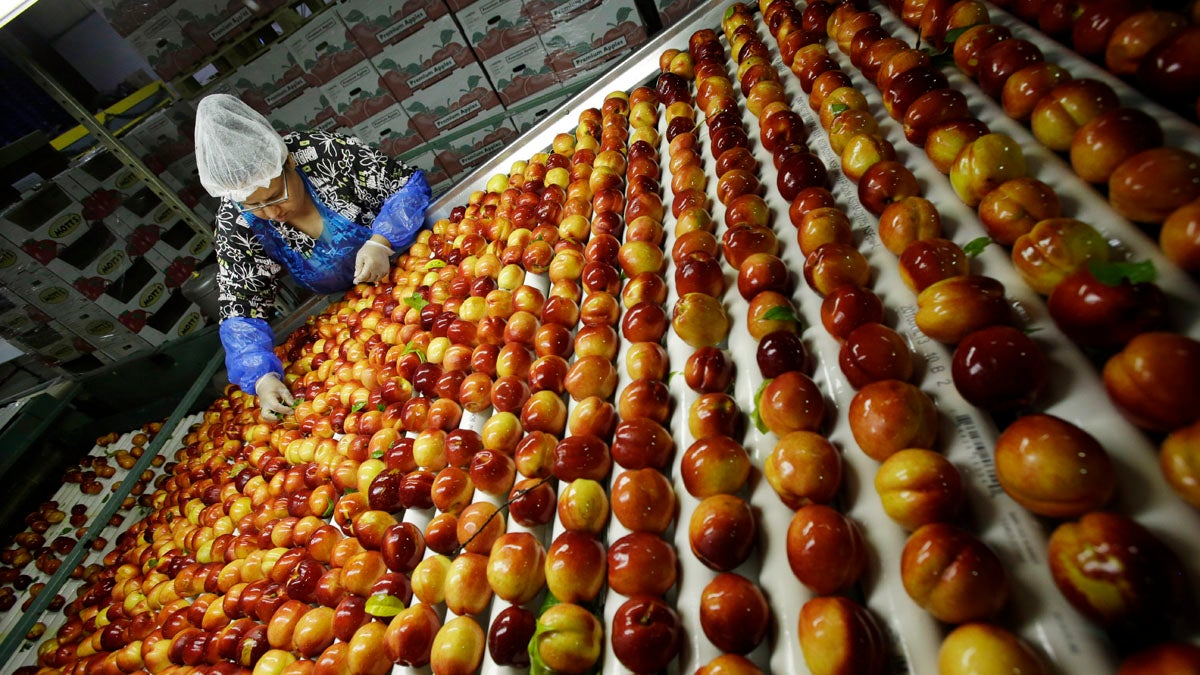NJ bills aim to tackle waste, combat hunger

A worker removes leaves as nectarines get sorted for packaging at Eastern ProPak Farmers Cooperative in Glassboro, New Jersey. It's estimated up to 40 percent of all food produced in the U.S. is wasted. (AP file photo)
Estimates put the amount of food wasted in the U.S. at about 40 percent — even as millions of people go hungry. Some New Jersey lawmakers have introduced measures to help change that.
A lot of fresh food goes to waste because farmers can’t sell all of it, said Assemblyman Bob Andrzejczak, one of two lawmakers to offer legislation on ways of combating hunger.
“What they end up doing is, they’ll have a pile in the back of their field. And it will rot, and they’ll turn it into compost and use it in the field the next year,” said Andrzejczak, D-Cape May. “What this is going to do is, rather than put them in the compost pile, you’re going to have people that are actually going to be able to eat it.”
The legislation, also sponsored by Assemblyman Tim Eustace, would encourage farmers to make the produce available for distribution to needy families.
“The problem is our supermarkets and our farms and our farmers markets are required to throw away produce that is wilted or stained, not 100 percent, so it ends up in the waste stream instead of on people’s tables,” said Eustace, D-Bergen.
Changes in regulations over liability could spur farmers and stores to donate food to ease the hunger of more than a million New Jersey residents, he said.
WHYY is your source for fact-based, in-depth journalism and information. As a nonprofit organization, we rely on financial support from readers like you. Please give today.




